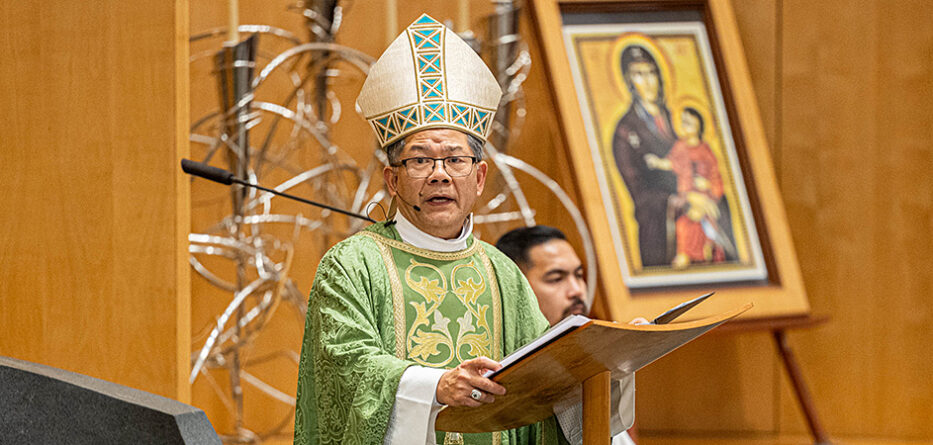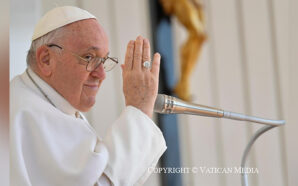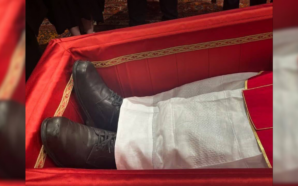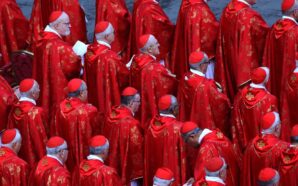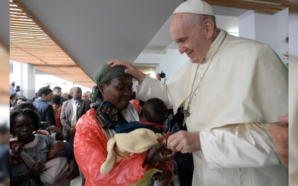Homily for the 24th Sunday in Ordinary Time, Year A
Readings: Ecclesiasticus 27:33 – 28:9; Psalm 102(103):1-4, 9-12; Romans 14:7-9; Matthew 18:21-35
17 September 2023
Imitating God’s magnanimity, kindness and forgiveness
Dear friends,
We live in a world that is full of conflict, injury and pain. With globalisation and technological advancement, there is a searing recognition of the lengths to which the inhumanity of human beings against one another can go. Crimes against humanity and heinous atrocities make us shudder. Threats of nuclear war and random acts of terrorism are rising. We have struggled throughout history for justice and peace, for fairness and freedom, for tolerance and harmony. Still, the suffering goes on: violence breeding more violence, exploitation escalating seemingly beyond remedy.
It is in this context that the Word of God speaks to us. It calls us to build a community where relationships are nurtured, and lives are transformed. The message of love, mercy and compassion within God’s vision of communion, solidarity and distributive justice is set against the ruthless, competitive, inhumane, survival-of-the-fittest mindset of the world. We are challenged to stretch the limits of our capacity to love in the way that mirrors the boundless mercy of God himself. Only by living and witnessing to the message of love, mercy and compassion can we be the authentic disciples of Jesus and the voice of conscience for our society.
The book of Ecclesiasticus exhorts us to show love in place of hate, compassion in place of resentment and forgiveness in place of anger. Jesus, likewise, teaches us to forgive not seven times but 77 times those who have offended us. This is a way of saying forgiveness is an essential requirement for faithful Christian discipleship. Forgiveness is meant to be our way of life. There is no limit to forgiveness just as there is no limit to love, which is revealed in Christ.
At face value, the command to forgive again and again seems humanly impossible. But the good news in all this is that we are not alone when we are called to forgive or to seek reconciliation. In it all, God is with us. God has incorporated us into his own very being by his gift of life and love to us. He has shown us the ultimate image of forgiveness when Jesus died on the cross for us all. Forgiveness is only possible if we remember God is within and God is our strength. That promise upholds us even when our willingness to reconcile with another or forgive is rejected.
We are called as Christians to witness to the incredible forgiving love of God in Christ. “Forgive us our sins as we forgive those who sin against us”. Forgiveness is possible because we have been reconciled with God in Christ. Within his life, suffering death and resurrection, there is a relationship that holds – a relationship between God and humanity revealed as indestructible. A love crucified but not destroyed. It is this love that has lived and poured out life and love and forgiveness ever since. From here on, human struggles for life, love and forgiveness will not be in vain.
Pope Francis is fond of saying that the Church is not a museum for saints or an enclosure for the virtuous. It is more like a field hospital, which heals the wounded, strengthens the weak and lifts up the lowly. It is a place where everyone can feel welcomed, loved, forgiven and encouraged to live according to the Gospel. Our very credibility is at stake when we lack forgiving and compassionate love for those who are on the periphery or estranged from the Church by one reason or another.
Our mission is to forgive, and to reveal the forgiveness of God, in and through Jesus Christ. We learn to be a forgiving and inclusive Church – a Church that reaches out to those who struggle and fall short of the Christian ideal; a Church that does not demean or marginalise people on account of their estrangement for one reason or another. It is a Church that dialogues, accompanies, encourages, engages with people’s struggles, wounds and failings. We are reminded of how the early Church enabled people like Thomas to make their personal journey from doubt to faith, brokenness to wholeness. Today, more than ever, we are called to make this ecclesial inclusiveness a real experience for our brothers and sisters.
Brothers and sisters,
If in the Old Testament, we see glimpses of the magnanimity with which God acts against the background of primitive human morality, his self-disclosure in Jesus is even more decisive and groundbreaking. With the poor, the lowly and the sinner, Jesus subverts our way. He epitomises the upside down way or the downward mobility of God, and in so doing, He breaks our narrow confines and stereotypes. He challenges us to a new way of seeing, judging and acting in respect of the marginalised and the vulnerable. May we learn to experience the depth of God’s forgiving love in Christ and may we in turn learn to expand our hearts, stretching its limits to match the breadth and the height, the length and the depth of God’s love.




